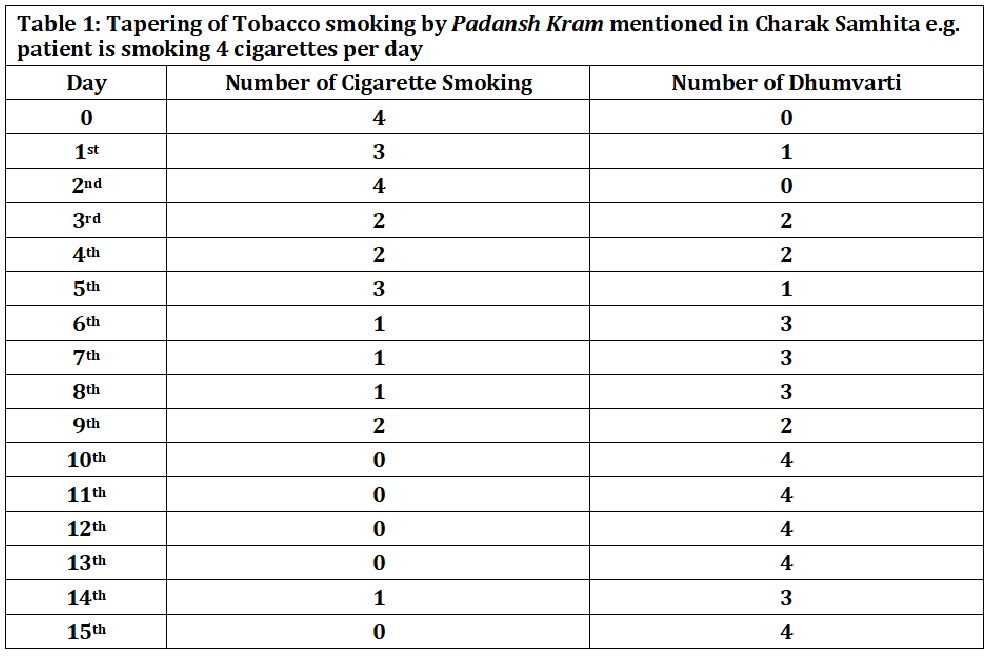Management of Addiction of Tobacco Through Ayurveda - A Formative Evaluation Study
DOI:
https://doi.org/10.47070/ijapr.v11i7.2879Keywords:
Ayurveda, Tobacco, Quit Tobacco, Quit Smoking, De-addictionAbstract
According to global cigarette smoking statistics, over a billion people are estimated to be regular smokers, despite knowing the harmful effects of it. This is because they are unable to discontinue the tobacco due to severe addiction. The same thing happens with tobacco when taken in chewing form. The present paper is Literary Research designed based on formative evaluation studies to evaluate the existing phenomena mentioned in Ayurveda and construct the treatment method which can be implemented to treat the hazardous effects of tobacco and to help in its de-addiction. A review of literature is done primarily from three major classical Ayurveda texts mainly Charak Samhita, Sushruta Samhita, and Ashtang Hruday. The references co-relating with inhaling and chewing toxic substances are collected from these classical texts. Treatment methods and herbs used in these references are then compiled, and categorized and a treatment plan is designed for the de-addiction of tobacco. Classical treatments of Ayurveda like Dhumpan, Kaval and Gandush, and Nasya are helpful to reduce urges and cravings for tobacco. Shirodhara and Yoga provide tranquility of mind and reduce stress and anxiety. Panchkarma therapy purifies the body by eliminating accumulated toxins. Rasayan treatment helps to rejuvenate and recover the damage caused by tobacco. It can be concluded that the principles of Ayurveda are useful to quit tobacco addiction and reduce its hazardous effects.
Downloads



